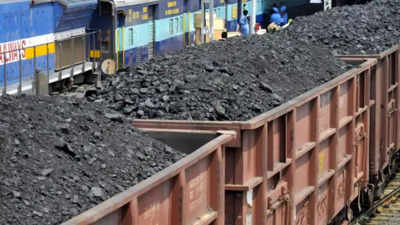Why is there a perceived necessity within the Indian Railways to establish specialized coal corridors in alignment with Dedicated Freight Corridors (DFCs) in order to address India's increasing power requirements?
A study conducted by the Railway Board advises giving top priority to the establishment of coal corridors in conjunction with the east coast Dedicated Freight Corridor (DFC) and the eastern segment of the east-west DFC.
The importance of dedicated Indian Railways corridors for coal transportation is underscored by a recent study conducted by the Railway Board. According to a report in ET, this study emphasizes the urgent requirement for specialized coal corridors to cater to the escalating power demand in India. The study highlights that the majority of coal transportation originates from Odisha, Jharkhand, and Chhattisgarh, destined for various regions in the north, west, and southeast of the country.
The report highlights the crucial requirement to create dedicated railway lines exclusively for coal transport along these specified routes. Concentrating on projecting coal transportation via rail until the year 2030, the report underscores the importance of aligning coal corridors with Dedicated Freight Corridors (DFC).
More specifically, it suggests giving priority to the development of coal corridors that are synchronized with the east coast DFC and the eastern segment of the east-west DFC. These designated corridors would streamline the movement of coal, particularly from Talacher to ports located along the eastern coastline. Projections indicate that India's energy demand is expected to surge to around 3,000 billion units (BU) annually by the year 2030.
Anticipating a population of 1.51 billion by 2030, it is projected that India's per capita energy consumption will remain at approximately 2,000 units per year. The study highlights the significant consequences that could arise from any shortage in energy supply, potentially causing substantial hindrances to the nation's development. Such shortages or power outages could affect multiple sectors, including manufacturing, agriculture, and transportation.
Additionally, the study foresees a substantial rise in India's coal consumption, expected to reach 1,853 million tonnes (mt) by the year 2030. This projection takes into account the country's robust economic growth rate and the per capita energy consumption estimated for 2030. Notably, this revised estimate exceeds the figures originally outlined in the National Rail Plan, which had initially set coal consumption at 1,547 mt.
To meet this escalating demand, the Railway Board's unit for traffic, transportation, and business research has identified and cataloged 615 priority projects in a prior report. These projects encompass 132 super-critical-I projects, slated for completion by the fiscal year 2024-25, 184 super-critical-II projects, with a target completion date in the fiscal year 2026-27, and 299 critical projects, scheduled for completion by the fiscal year 2027-28.





.jpg)
